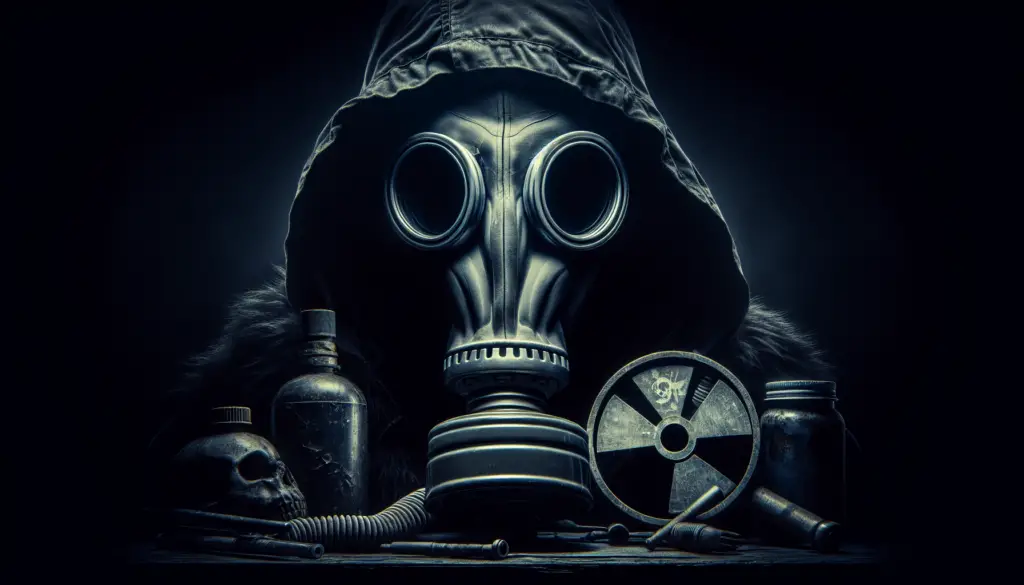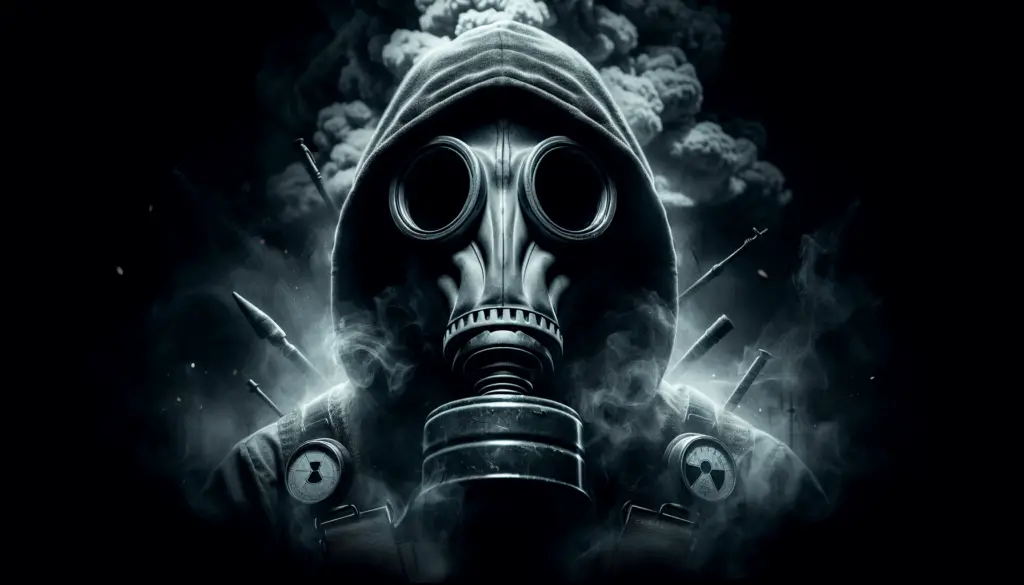Are You Prepared for Handling Nuclear Fallout?
As a prepper, it’s crucial to be ready for any disaster that may come your way. One of the most catastrophic events to prepare for is nuclear fallout. In this guide, you will learn everything you need to know to handle nuclear fallout efficiently and effectively.
Understanding Nuclear Fallout
Nuclear fallout is the residual radioactive material that is ejected into the atmosphere after a nuclear explosion. It can travel long distances and settle on the ground, contaminating everything in its path. It can cause severe health issues if not properly managed.
Understanding what nuclear fallout is and how it behaves is essential to preparing for it. You must know how it spreads, how long it remains radioactive, and how to protect yourself and your loved ones from its harmful effects.
Preparing Your Shelter for Nuclear Fallout
Having a proper shelter is crucial when dealing with nuclear fallout. Your shelter should be underground or in a well-insulated building to minimize exposure to radiation. Make sure it has enough supplies to last at least two weeks, including food, water, medical supplies, and communication devices.
Your shelter should also have a ventilation system with a HEPA filter to prevent radioactive particles from entering. Seal all doors and windows with plastic sheeting and duct tape to create airtight protection.

Creating a Nuclear Fallout Emergency Kit
In addition to your shelter, you should also have a nuclear fallout emergency kit ready at all times. This kit should include essentials such as:
- Radiation detection devices: Geiger counters or dosimeters to monitor radiation levels.
- Protective clothing: Hazmat suits, gloves, masks, and goggles to shield yourself from radioactive particles.
- Potassium iodide tablets: To protect your thyroid gland from absorbing radioactive iodine.
- Emergency supplies: Food, water, first aid kit, flashlight, batteries, and a portable radio.
Having an emergency kit prepared and easily accessible can make a significant difference in surviving nuclear fallout.
Evacuation Plans and Routes
It’s essential to have evacuation plans and routes in place in case you need to leave your shelter due to unforeseen circumstances. Plan multiple evacuation routes, considering road closures, traffic congestion, and potential radioactive contamination zones.
Make sure everyone in your household knows the evacuation plan and designated meeting points. Keep a map of the area with evacuation routes marked and regular practice drills to ensure everyone is familiar with the process.

Connecting with Local Authorities
Stay informed by connecting with local authorities and emergency management agencies. They can provide valuable information on radiation levels, evacuation orders, and available shelters. Register for emergency alerts on your phone and follow local news updates for real-time information.
Reach out to your local government to understand the steps they have in place to manage nuclear fallout emergencies. Knowing who to contact and where to go for assistance can be life-saving in critical situations.
Stockpiling Essential Supplies
Stockpiling essential supplies is crucial to surviving nuclear fallout. Make sure you have an ample supply of non-perishable food, water, medication, and other necessities to sustain yourself during an emergency.
Consider investing in a water filtration system, as clean water may be scarce during a nuclear fallout. Rotate your food supply regularly to ensure freshness and check expiration dates on all items.
Decontamination Procedures
If you have been exposed to nuclear fallout, it’s essential to know proper decontamination procedures to reduce radiation exposure. Remove contaminated clothing immediately and shower with soap and water thoroughly.
Use a radiation detection device to check for any remaining radioactive particles on your body. Dispose of contaminated items properly in sealed plastic bags and wash all surfaces that may have been exposed to radiation.
Monitoring Radiation Levels
Monitoring radiation levels in your environment is crucial to ensuring your safety during nuclear fallout. Use radiation detection devices to measure radiation levels inside and outside your shelter regularly. Keep a log of readings to track any changes over time.
Limit your outdoor exposure and avoid consuming contaminated food or water. Stay informed about radiation levels in your area and follow any guidelines provided by health officials to protect yourself and your family.
Emotional Well-being During a Crisis
Handling nuclear fallout can be a stressful and emotionally draining experience. It’s essential to take care of your mental health and well-being during a crisis. Stay connected with loved ones, practice self-care, and engage in activities that bring you comfort and solace.
Reach out to support groups or mental health professionals if you’re struggling to cope with the aftermath of nuclear fallout. Remember that you’re not alone, and it’s okay to seek help when needed.
Conclusion
Preparing for nuclear fallout may seem daunting, but with the right knowledge and resources, you can increase your chances of survival. By understanding the dangers of nuclear fallout, creating a safe shelter, and equipping yourself with essential supplies, you can protect yourself and your loved ones during a crisis.
Stay informed, stay prepared, and stay safe. Remember, your safety and well-being are the top priorities in any emergency situation. Take the necessary steps to ensure you’re ready to handle nuclear fallout effectively.
